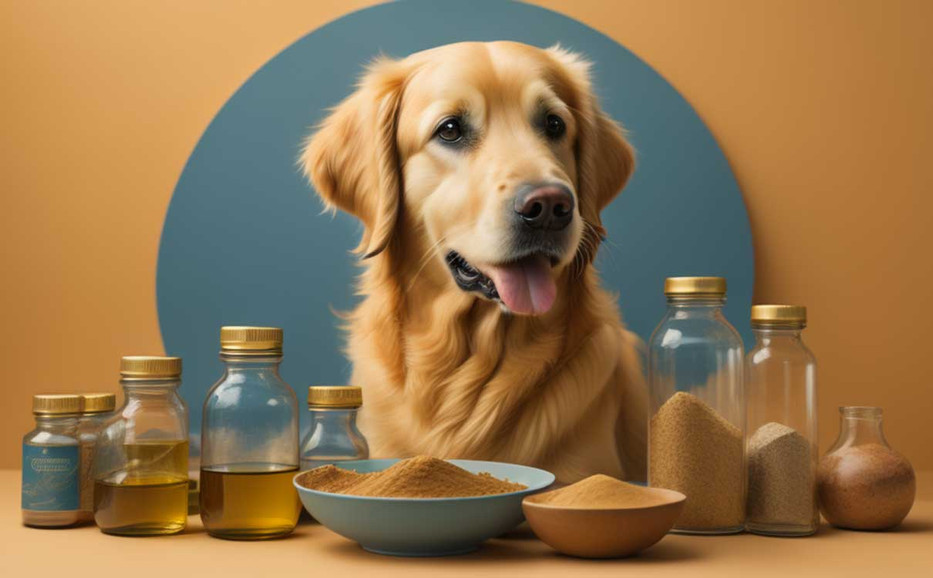
What is all that “stuff” my neighbor adds to her dog’s food? Am I missing something?
Apr 24th 2024
For so many years, feeding our beloved dogs and cats was really simple. We bought the best food we knew about (and could afford), read the feeding instructions on the back of the bag or can and fed it until we ran out.
There have been so many advancements in technology and science, that while we know what may be better for our pets it has left many of us with more questions than answers about what is the “best food”.
The number of items to add to your dog or cat’s bowl is endless. Walking the aisles of your local pet store or supermarket will tell you that. While the options are limitless, let this serve as a start to providing what is best for your pet’s food these days.
Adding Nutritional Supplements and Oils to your pet's food is a common practice aimed at enhancing their overall health and addressing specific nutritional needs. But wait, what about all of the rich ingredients I already paid for in my food?
While a balanced and high-quality pet food is designed to meet most dietary requirements (if that nutrition is still in the bag, more on that later), there are scenarios where supplements and oils become beneficial. Here are several reasons why you might consider incorporating Supplements and Oils into your pet's diet
Joint Health: As pets age, they may experience joint issues, arthritis, or stiffness. Omega-3 fatty acids, found in fish oils and supplements, have anti-inflammatory properties that can help alleviate joint pain and improve mobility. Glucosamine and chondroitin supplements are also commonly used to support joint health and reduce the progression of arthritis in aging pets.
Coat and Skin Conditions: Certain skin conditions, such as dermatitis or hot spots, may require additional support beyond a standard diet. Supplements with vitamins and fatty acids can help manage these conditions and promote skin healing. In addition, Salmon OIl rich in Omega-3 fatty acids like EPA and DHA as well as Sunflower Oil, one of nature’s richest sources of linoleic acid and omega-6 fatty acid, can promote healthy skin and a bright shiny coat.
Digestive Health: Probiotics and digestive enzymes are frequently added to support a healthy digestive system. These supplements aid in nutrient absorption, promote a balanced gut microbiome, and can alleviate digestive issues such as diarrhea or constipation. They are particularly beneficial during diet transitions or when pets are on antibiotics, which can disrupt the gut flora.
Allergies and Sensitivities: Pets with food allergies or sensitivities may benefit from supplements that help manage symptoms. Omega-3 fatty acids, for example, can reduce inflammation associated with allergies. Salmon OIl is known to help reduce inflammation in dogs and cats.
Dental Health: Dental supplements, like dental chews or additives with enzymes, can contribute to maintaining good oral hygiene in pets. They can help reduce plaque and tartar buildup, minimizing the risk of dental issues and promoting overall dental health.
Weight Management: Pets struggling with obesity or weight management issues may benefit from supplements designed to support a healthy metabolism. L-carnitine, for instance, is an amino acid that helps convert fat into energy and is commonly included in weight management supplements for pets.
Tailored Diets: Some pets may have unique dietary requirements due to medical conditions or breed-specific considerations. Supplements allow pet owners to tailor their pet's diet to address these specific needs, ensuring that their nutritional requirements are met..
While supplements and oils can offer various benefits, here are some important considerations
Individualized Approach: Each pet is unique, and their nutritional needs vary. What works for one animal may not be suitable for another.Quality Matters: Choose high-quality supplements from reputable brands to ensure the purity and effectiveness of the ingredients.Proper Dosages: Follow recommended dosage guidelines provided by your veterinarian or the supplement manufacturer.Regular Monitoring: Regular veterinary check-ups are essential to monitor your pet's overall health and adjust the supplement regimen as needed. Conditions and nutritional needs may change over time, requiring modifications to the supplementation plan.Get back to providing the best food for your dog or cat in today’s day and age. Activa Custom is here to help you. Activa’s Leading Animal Nutritionist developed all of the Premium Lines and has helped create over 28 Nutritional Supplements like Allergy,Senior, Hip & Joint and a great variety of Oils such as Salmon and Sunflower Oil recommendations (added in each bag in the right amounts) to help will make Activa Custom just perfect for your pet.

